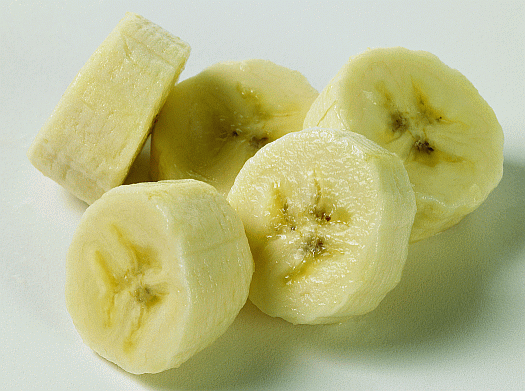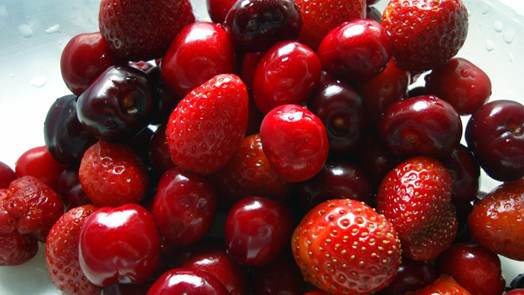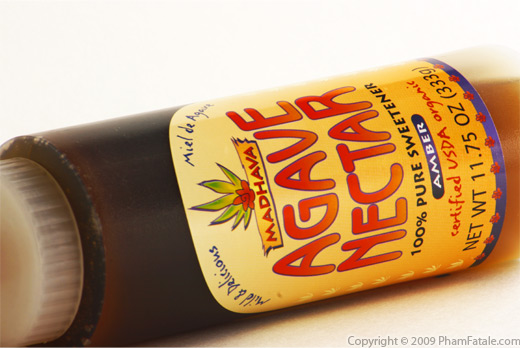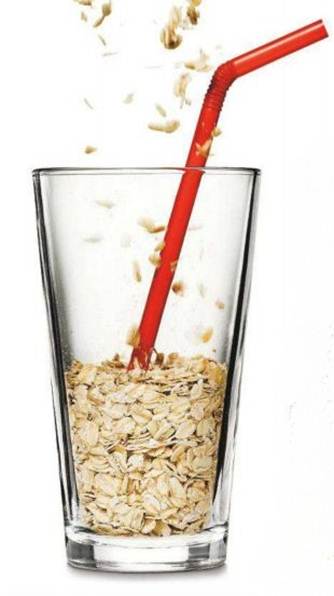A Peeling News
21 Grams of sugar you’ll save by
swapping a 20-ounce sports drink for a banana. (That’s a candy bar’s worth!)
Next time you’re refueling during a sweat
session, go bananas literally. A new study from Appalachian State University found
that when cyclists ate half of one in place of downing a bottled sports drink
every 15 minutes during a simulated race, they got an identical performance
boost, plus added nutritional benefits. Bananas offer an all-natural,
fiber-packed source of carbohydrates, potassium and vitamin B6 without empty
calories and artificial ingredients,” explains lead researcher David C. Nieman,
Ph.D. So fill your water bottle, pack one of these travel-friendly fruits, and
get ready to slip into high gear.

21
Grams of sugar you’ll save by swapping a 20-ounce sports drink for a banana.
Price Check
Once you compare foods by cost per
serving size not per calorie, as previous studies have you see that nutritious
options don’t have to put a pinch on your wallet.
A bag of chips can look like a bargain next
to those berries and peppers, but that perception is skewed, according to a new
report from the U.S. Department of Agriculture’s Economic Research Service.
Once you compare foods by cost per serving size not per calorie, as previous
studies have you see that nutritious options don’t have to put a pinch on your
wallet. “It comes down to how much you’re paying to create a meal,” says
coauthor Andrea Canson, Ph.D. While boneless chicken, for example, may seem
like a splurge, two bucks’ worth of the protein rich ingredient will feed you
better than the same dollar amount spent on impulse snack buys. With a little
planning and some quick calculations, says Carlson, eating healthfully can
actually save you money.

Once
you compare foods by cost per serving size not per calorie, as previous studies
have you see that nutritious options don’t have to put a pinch on your wallet.
Diet Friend or Foe?
Agave Neclar
This popular syrup is gaining traction as
the preferred sweetener for the all-natural crowd, showing up in tea, baked
goods, even cocktails. Agave’s main claim to fame ¡s its relatively low
glycemic index, meaning it may cause less of a spike ¡n blood sugar levels than
table sugar, corn syrup, or even honey. But like all simple processed sugars,
it has its downside, says Pittsburgh-based dietitian Heather Mangieri, R.D., a
spokeswoman for the Academy of Nutrition and Dietetics. “Agave’s glycemic index
is lower because it has a higher concentration of fructose, rather than glucose,”
says Mangieri. “But that doesn’t necessarily make ¡t healthier. Fructose can
cause triglyceride levels to rise, upping your risk for heart disease.” On the
plus side, agave is one and a half times as sweet as sugar, honey, or maple
syrup, so you don’t have to use as much to get the flavor you desire. Bottom
line: Limit yourself to no more than 6 teaspoons a day.

Agave
Neclar
Liquid Assets
Are you getting your recommended three to
five servings of whole grains every day, or are you part of the more than 40
percent of Americans who don’t consume any? Now there’s a simple way to take in
a serving or more: through a straw. These refreshing drinks all use fiber-rich
oats to transform plain old juice into tasty, satisfying smoothies.
Sneaky Pete’s Naturally Outstanding mango
mystique beverage ($2 for 12 oz) 40 calories, Og fat, 3g fiber per serving
Simply tropical fruits oat shake ($2 for
8.45 oz) 160 calories, 2g fat, 8g fiber per serving
Bolt house farms strawberry parfait
breakfast smoothie ($3 for 15.2 oz) 190 calories, 2.5g fat, 3g fiber per 8-oz
serving

Are
you getting your recommended three to five servings of whole grains every day,
or are you part of the more than 40 percent of Americans who don’t consume any?
The Inside Dish
If you think you’re eating healthier when
you choose a lighter option from the menu while dining at restaurants like
Olive Garden or Outback Steakhouse, think again. A recent RAND corporation
survey of nearly 30,000 menu items at 245 national chains found that a whopping
96 percent of entrées fall outside the range of the USDA’s recommendations for
fat, saturated fat, and sodium. “Many menus list calorie counts, but there’s
often more to those dishes than meets the eye,” warns Jessica Crandall, R.D., a
spokesperson for the Academy of Nutrition and Dietetics. “For instance, a
chicken sandwich may be only 400 calories, but if it’s smothered in cheese and
other toppings, the fat and saturated fat can really add up.” Still Jonesing
for a TGIF or Chipotle nosh? Read up before you go: Many restaurants list
nutritional information on their websites.